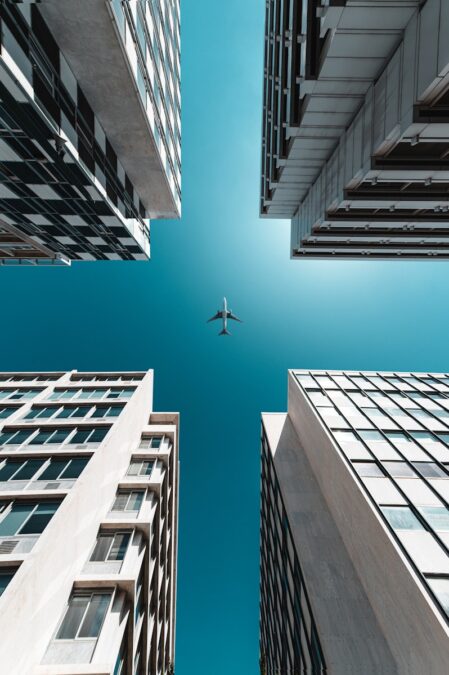Enhancing Ecosystems Within Urban Landscapes in the Middle East
The Importance of Biodiversity in Urban Planning
Integrating urban biodiversity into smart city planning is crucial for creating sustainable and livable urban environments. In dynamic cities like Riyadh and Dubai, where urban expansion is rapid, incorporating green spaces is essential to maintain ecological balance and enhance the quality of life for residents. Urban biodiversity not only supports local wildlife but also provides substantial environmental, economic, and social benefits. These include temperature regulation, improved air quality, and enhanced aesthetic value, contributing to the overall health and well-being of the urban population.
Strategic Implementation of Green Spaces
Smart city planning involves the strategic integration of green spaces to promote biodiversity. This can be achieved through various initiatives such as the development of green roofs, urban parks, and vertical gardens. Each of these elements plays a pivotal role in enhancing urban ecology by providing habitats for diverse plant and animal species. Moreover, cities like Dubai and Riyadh are leveraging advanced technologies like Geographic Information Systems (GIS) and Artificial Intelligence (AI) to optimize the location and maintenance of these green spaces. This scientific approach helps in maximizing ecological benefits while minimizing upkeep costs.
Benefits of Urban Green Spaces
The benefits of integrating green spaces into urban areas extend beyond environmental impact. Socially, they provide communal areas for recreation and relaxation, fostering a sense of community among residents. Economically, increased urban greenery can enhance property values and attract tourism, contributing to the city’s prosperity. In Riyadh and Dubai, initiatives to expand urban forests and parks have been linked to improvements in public health, showcasing the holistic value of urban biodiversity in smart city planning.
Overcoming Challenges in Urban Ecology
While the benefits of urban green spaces are manifold, several challenges hinder their integration into city planning. Limited space in densely populated cities can make it difficult to find room for such green areas. Additionally, urban soil often lacks the nutrients necessary to support diverse plant life. However, solutions like soil remediation and the use of structured planters can overcome these barriers. In Dubai, innovative projects such as the development of artificial islands and rooftop gardens reflect how cities can creatively incorporate biodiversity despite spatial limitations.
Technological Advances Supporting Urban Biodiversity
Technology plays a critical role in enhancing urban biodiversity through smarter planning and management. AI and the Internet of Things (IoT) are used for monitoring environmental conditions and managing water resources efficiently in green spaces. Blockchain technology can also support transparency in the management of natural resources. These technologies ensure that the ecological aspects of urban design are not only preserved but thrived upon, driving forward the ambitions of cities like Riyadh and Dubai to become leaders in sustainable urban development.
Role of Public Participation in Urban Biodiversity Projects
Public involvement is pivotal in the successful integration of biodiversity into urban planning. Encouraging community engagement through educational programs and participatory planning processes can greatly enhance the implementation and sustainability of green projects. In cities like Dubai and Riyadh, initiatives such as community gardens and citizen science projects involving biodiversity monitoring are gaining popularity. These programs not only foster a greater connection between residents and their environment but also promote active public stewardship of urban green spaces. This collaborative approach ensures that urban biodiversity initiatives are more comprehensive and reflective of community needs.
Integrating Water-Smart Solutions in Green Spaces
Water management is a critical aspect of sustaining urban biodiversity in arid environments like Riyadh and Dubai. Implementing water-smart solutions such as xeriscaping, the use of drought-resistant plants, and efficient irrigation systems can significantly reduce water usage while maintaining lush, vibrant green spaces. Advances in technology, including AI-driven water management systems that optimize irrigation based on real-time climate data, are helping these cities overcome the challenges of water scarcity. Such innovative strategies are essential for the resilience of urban ecosystems in desert climates, ensuring long-term sustainability.
Policy Frameworks to Support Urban Green Spaces
Robust policy frameworks are essential to ensure the successful integration of green spaces into urban planning. Governments in the UAE and Saudi Arabia are implementing policies that mandate the inclusion of biodiversity considerations in all new urban development projects. These policies often include incentives for private developers to incorporate green spaces into their designs and penalties for non-compliance. By establishing clear regulatory guidelines and support mechanisms, these nations are setting a strong foundation for the development of sustainable and biodiverse urban landscapes, aligning with their broader environmental and societal goals.
Future Directions for Smart Cities
Looking ahead, the integration of green spaces within urban planning is set to revolutionize smart city designs. It is expected that future smart cities will prioritize ecological and social sustainability by embedding green spaces into their core structure. This will involve not only traditional parks but also innovative concepts like bio-swales and green corridors that connect larger green spaces across the city, facilitating wildlife movement and plant growth. With ongoing advancements in technology and a strong commitment to sustainable development, cities such as Riyadh and Dubai are poised to set global benchmarks in urban biodiversity and smart city planning.
#UrbanBiodiversity, #SmartCityPlanning, #GreenSpaces, #SustainableDevelopment, #Riyadh, #Dubai, #EnvironmentalSustainability, #AI, #Blockchain, #CommunityHealth, #UrbanForestry, #TechnologyInnovation, #CityParks









